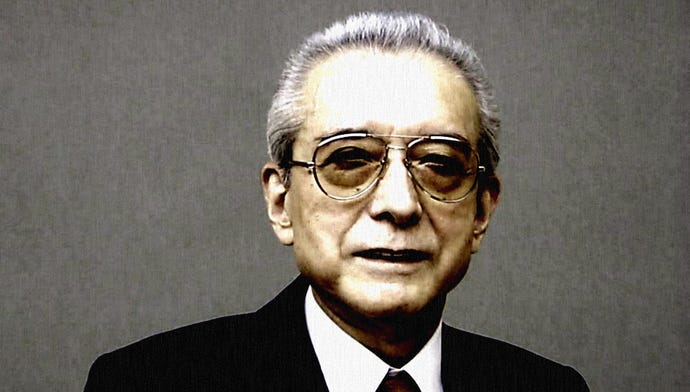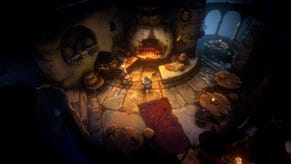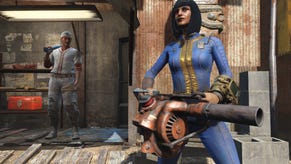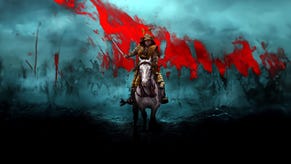Hiroshi Yamauchi: The Iron Fist in the Velvet Glove
Former Nintendo president Hiroshi Yamauchi, one of the most influential figures in the video games industry, has died at the age of 85. We look back on the man, his life, and his impact on our favorite hobby.
This article first appeared on USgamer, a partner publication of VG247. Some content, such as this article, has been migrated to VG247 for posterity after USgamer's closure - but it has not been edited or further vetted by the VG247 team.
You probably know the story well by now, but Nintendo wasn't always about video games. It used to be about playing cards, and it was Hiroshi Yamauchi who helped the company transition into the modern age, shaping the Nintendo we know today.
This morning, Mr Yamauchi passed away at the age of 85, leaving behind a lasting legacy on both Nintendo and the games industry as a whole.
Hiroshi Yamauchi, grandson of Nintendo founder Fusajiro Yamauchi, took control of Nintendo in 1949 following Yamauchi the elder suffering a stroke. From the company's inception in 1889 until this time, it had exclusively focused on the manufacture of cards with which to play the Japanese game Hanafuda -- something the company still does in Japan to this day.
Upon a visit to the United States in 1956, however, Yamauchi the younger was dismayed to discover that the world's biggest company in Nintendo's area of expertise -- the United States Playing Card Company -- was being run out of what he considered to be a small office. The discovery prompted the first of Yamauchi's big, bold decisions -- redirecting Nintendo's attentions outside of the playing card business' inherent limitations. Making bold moves like this is a characteristic that would go on to define Yamauchi's time at the company -- though his decisions weren't always popular or even successful. He had the confidence and determination to make these difficult decisions, though, and to carry them through -- but also to acknowledge and learn from his mistakes when necessary. You might not think of the family-friendly Nintendo as having such a shrewd, cunning businessman at its helm, but Yamauchi was very much the iron fist concealed within the velvet glove the company presented to the world.
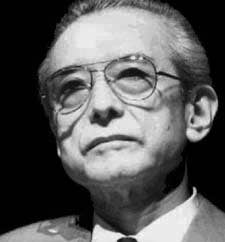
Throughout the 1960s, Yamauchi led Nintendo in a variety of seemingly disparate -- but all somehow quintessentially Japanese -- directions. Between '63 and '68, the company tried its hand at everything from providing taxi services to running a chain of love hotels, but all of these ventures ultimately proved unsuccessful. Imagine the parallel universe in which Nintendo love hotels are still a thing -- it's a peculiar thought, isn't it? Unsurprisingly, though, Yamauchi's experimentation, while done with the best of intentions, drove the company to the brink of bankruptcy.
It was in '66 that we started to see the first hints of the Nintendo we know today. Yamauchi moved employee Gunpei Yokoi -- the man who would later go on to create the Game Boy -- from a role in maintenance to product development after seeing the young factory engineer experimenting with an extendable claw he'd made to amuse himself during his breaks. The Ultra Hand, as the eventual product based on Yokoi's initial prototype was called, proved to be a huge success, leading to another revelation for Yamauchi: Nintendo should become a toy maker.
This particular bold decision paid off: after struggling since Yamauchi's brave but troubled experimentation in the early '60s, found success with its electronic toys. Unusual products such as the Love Tester and early incarnations of light gun games immediately distinguished themselves from other, more primitive toys of the 1960s, and helped find a comfortable niche for the company in which it could lick its wounds and recover from a difficult period.
Yamauchi saw the popularity of electronic toys and figured that the falling cost of electronics meant they could be incorporated into entertainment products relatively easily -- and indeed, some companies were already starting to do this. Atari and Magnavox had already released their first games consoles by this point; it didn't take long for Yamauchi to jump on board the electronic gaming revolution and negotiate a deal to distribute the Magnavox Odyssey in Japan. This wasn't enough for the ambitious Yamauchi, however; 1977 saw Nintendo release its first game console, the Color TV Game 6 (and you thought Xbox One was a confusing name) -- a system that was, as with most other gaming devices at the time, a means of playing various Pong-like games on your television.
Yamauchi had the confidence and determination to make difficult decisions, but also to acknowledge and learn from his mistakes.
It was around this time that Yamauchi felt it would probably be a good idea to expand Nintendo's operations into the United States, which was undergoing significant growth in the arcade market. Sending his son-in-law Minoru Arakawa to the company's new American headquarters, Yamauchi aimed to introduce a number of the company's Japanese hits to the United States, but it was not to be; it wasn't until 1981 that the company would really break America thanks to a pet project from young designer Shigeru Miyamoto: an arcade game called Donkey Kong.
Following Donkey Kong's explosion of popularity, Yamauchi instituted one of his most wide-ranging and successful changes to the way Nintendo worked as a whole: the formation of three distinct research and development units, each of which was designed to compete against the others in an attempt to drive creativity and innovation. The first of these was helmed by Yokoi, the man whose invention was at least partly responsible for Nintendo's recovery, and went on to bring us the first microprocessor-powered handheld LCD game system: the Game & Watch.
This still wasn't enough for Yamauchi, who was becoming increasingly ambitious with each of his company's subsequent successes. Although the Game & Watch sold well, he wanted something that was both affordable and unique; something with which Nintendo could dominate the market. Thus, the Family Computer or Famicom -- the system that would eventually become the NES -- was born, and with it Yamauchi came to a realization about this new breed of computerized entertainment: the hardware was nothing without software to run on it. With this in mind, he insisted that the new system was easy to program, helping to encourage developers to create great games; he strongly believed that the best experiences came not from technicians, but from artists, and by making the technical side as easy as possible, the creative types could let their imaginations run wild. This is a philosophy we're starting to see a return to today -- particularly in the independent sector.
Throughout the early Famicom and NES period, Yamauchi personally oversaw and approved which games would be released for the system -- despite not having any experience with engineering or gaming himself. He had a shrewd mind for business, however, and had a talent for predicting what would become both popular and profitable, and his intuition is credited as the main reason Nintendo became as popular as it did throughout both the NES and SNES eras -- he continued personally overseeing and approving the release of games until around 1994, which was well into the SNES' lifespan. Yamauchi's approach to personally selecting games was sometimes seen as overly harsh and -- ironically, given his belief that artists make the best games -- creatively stifling for third-party developers, but it came about at least partly in response to Yamauchi wanting to avoid poor quality games from avaricious developers and publishers such as those which had brought the American games industry to the brink of collapse. It was a restrictive policy -- it's even been called "tyrannical" by some commentators -- but ultimately it proved to be to the company's benefit, and is one of many instances that proves Yamauchi wasn't afraid to step on a few toes in his attempts to make his company as profitable as possible.
"If the DS succeeds, we will rise to heaven, but if it fails, we will sink to hell."
Hiroshi Yamauchi, February 2004
Yamauchi took a different approach with the SNES' successor the N64, however, which was released in 1996 at least partly to distract attention away from the disastrous Virtual Boy. Yamauchi admitted at the 2001 Space World event that he had deliberately ordered the N64 be difficult to develop for. The intention behind this was to discourage untalented third-party developers from releasing poor-quality games -- it was no longer practical for Yamauchi to personally approve every game -- but the plan backfired somewhat: given the commercial success of previous Nintendo systems, third-party developers were still keen to get their games on a Nintendo console, and this consequently led to a number of sloppy, low-quality third-party games that clashed significantly with the high-quality first- and second-party titles that were being released on the platform.
Unshaken by his failed plan, Yamauchi learned from his mistake and ordered that the Gamecube be simple and straightforward to develop for. He also specifically believed in making a 'pure' games console rather than following the path of the all-in-one entertainment hub that its contemporaries the PlayStation 2 and the first-generation Xbox were embarking on at the time. Remembering his focus on software from the Famicom era, Yamauchi aimed to keep the cost of the hardware itself as low as possible, believing that people did not buy the hardware for the hardware itself, but for the games. Consequently, the Gamecube was the cheapest of all the sixth-generation video games consoles, though the prices for its software were in line with its rivals from Sony and Microsoft.
Yamauchi stepped down from his position as president of the company in 2002, allowing the head of the company's corporate planning division Satoru Iwata to take the reins. This wasn't the end of Yamauchi's influence on the company, though; even after his retirement, he is credited with coming up with the original concept for the Nintendo DS' dual-screen nature.
"If the DS succeeds, we will rise to heaven," Yamauchi reportedly said in February of 2004, "but if it fails, we will sink to hell." He wasn't exaggerating; despite his noble philosophy behind the Gamecube, the system had failed to capture the public's imagination in the same way as the unstoppable PlayStation 2 and, to a lesser extent, the Xbox. Nintendo was in trouble, having posted its first operating loss for a century, even in a year that had seen the launch of both the Game Boy Advance SP and two new Pokemon games. Fortunately, as we know, the DS turned out to be a huge success -- a legacy that its successor the 3DS is seemingly continuing after a wobbly start -- but it's a sobering thought that without Yamauchi's initial suggestion to try doing something with two screens, the Nintendo we know today might have taken the Sega route of abandoning hardware altogether -- or it might not even exist at all.
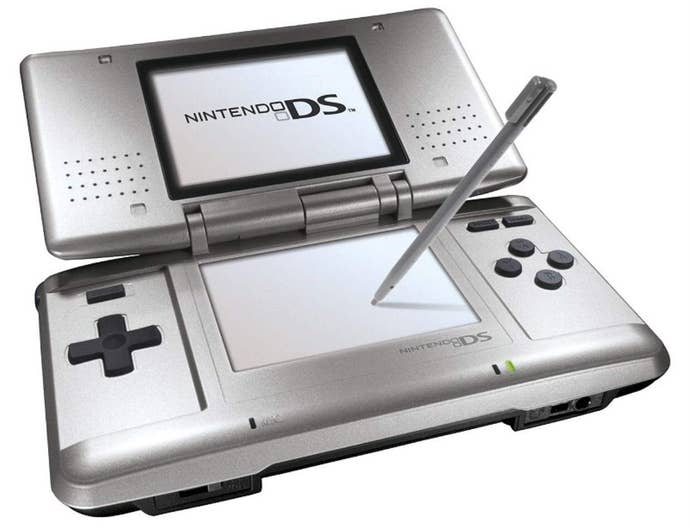
Yamauchi stepped down from Nintendo's board of directors in 2005, comfortable in the knowledge that he had left the company in good hands -- though he remained a majority shareholder. He declined his retirement pension -- estimated in value at well over $9 million -- believing that Nintendo could put it to better use, and donated 7.5 billion yen ($75,888,000) of his personal fortune to build a new cancer treatment in Kyoto.
Yamauchi passed away this morning following pneumonia-related complications. Although he had not been directly involved with the company since 2005, his influence on it since he joined in 1949 -- and his influence on the modern games industry as a whole -- cannot be understated. A Nintendo spokesperson today said that the company was in mourning for the loss of a man who had been such a significant part of its history; the industry as a whole, too -- press and public alike -- has been paying its respects to Yamauchi and his legacy.
So long, then, Yamauchi-san; there's a DS waiting for you up ahead.
